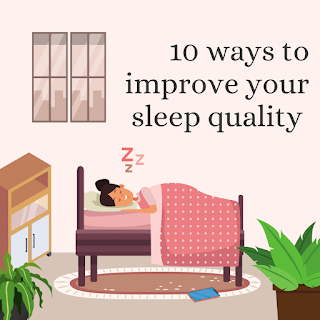Understanding the connection between mental health and physical health
Mental Health Awareness
Mental health is an essential aspect of our overall well-being. It refers to our emotional, psychological, and social well-being and affects how we think, feel, and act.
Just like physical health, mental health plays a vital role in our daily lives, impacting our ability to cope with stress, handle relationships, and make sound decisions. Unfortunately, mental health issues are often stigmatized and not given the importance they deserve.
It is crucial to raise awareness about mental health to ensure that individuals of all genders and ages receive the support and resources they need.
Understanding the Connection between Physical and Mental Health
Many people tend to view physical and mental health as separate entities. However, the truth is that these two aspects of our well-being are interconnected, and one heavily influences the other. Numerous studies have established a strong link between physical and mental health, highlighting the importance of addressing both aspects to achieve overall well-being.
Physical health refers to the condition of our bodies and involves factors such as exercise, nutrition, and sleep. On the other hand, mental health encompasses our emotional and psychological well-being, including our thoughts, feelings, and behaviors.
Research has consistently shown that poor physical health can contribute to the development of mental health problems. For example, individuals with chronic conditions, such as heart disease or diabetes, are more likely to experience symptoms of depression or anxiety. Additionally, physical ailments can lead to decreased mobility and increased dependency on others, which can negatively impact an individual's mental well-being.
Conversely, mental health issues can also manifest in physical symptoms. Chronic stress, anxiety, and depression can manifest as headaches, muscle tension, digestive problems, and even weakened immune systems. This indicates that the mind and body are intricately connected and that neglecting one can have adverse effects on the other.
Mental Health Benefits of Physical Activities
Engaging in regular physical activities, such as exercise or sports, can have numerous positive effects on mental health. Understanding the mental health benefits of physical activities is crucial for promoting overall well-being and improving quality of life.
1. Reduced Symptoms of Depression and Anxiety
Physical activity has been shown to reduce symptoms of depression and anxiety by stimulating the production of endorphins, also known as "feel-good" hormones. Endorphins are natural chemicals in the brain that promote feelings of happiness and relaxation. Regular physical activity can help manage stress and improve mood, providing a natural boost to mental well-being.
2. Increased Self-Esteem
Engaging in physical activities can boost self-esteem and improve body image. Regular exercise helps individuals feel more confident in their abilities and physical appearance, which can have a positive impact on their mental well-being. Moreover, achieving fitness goals and improving physical abilities through regular exercise can enhance self-worth and overall self-perception.
3. Improved Cognitive Function
Physical activities have been linked to improved cognitive function and brain health. Exercise increases blood flow to the brain, promoting the growth of new neurons and enhancing cognitive abilities, such as memory, attention, and problem-solving. Regular physical activity can also reduce the risk of cognitive decline and cognitive disorders, such as Alzheimer's disease.
4. Stress Reduction
Physical activities serve as a natural stress reliever. Engaging in exercises or sports helps release built-up tension and promotes relaxation. Regular physical activity can also improve sleep quality, which plays a significant role in maintaining good mental health. By reducing stress levels, physical activities contribute to improved overall well-being.
5. Social Connections and Support
Participating in physical activities often involves interacting with others, whether through team sports, group classes, or exercise buddies. These social connections can provide a sense of belonging, support, and camaraderie, which are vital for mental well-being. Building positive relationships through physical activities can combat feelings of isolation and foster a sense of community.
The Importance of Seeking Help
It is crucial to recognize the signs of mental health issues and seek professional help when needed. Mental health problems can affect individuals of all genders and ages, and seeking support is a sign of strength, not weakness. If you or someone you know is experiencing persistent feelings of sadness, anxiety, or other concerning symptoms, reaching out to a healthcare professional, therapist, or counselor can make a significant difference.
Remember that mental health is as important as physical health, and taking care of both is essential for overall well-being. By promoting mental health awareness, understanding the connection between physical and mental health, and harnessing the mental health benefits of physical activities, we can create a positive impact on our lives and the lives of those around us.




Hi Best! This is such a lovely run-down and I enjoyed reading through all of it. Thanks for giving more insight to this especially during Men's mental health awareness month.
ReplyDelete